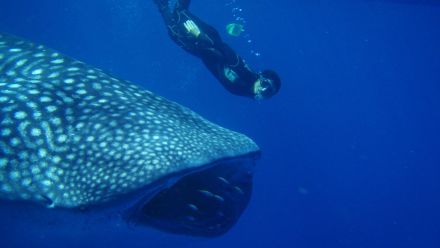Honours highlight First Nations justice reform
“I hope this award helps to push our efforts along faster.”
Dr Jill Guthrie has been given one of Australia's highest honours for significant service to Indigenous health, including her work on reducing Aboriginal and Torres Strait Islander contact with the criminal justice system.
Dr Guthrie, a descendant of the Wiradjuri people of Western NSW, was one of three academics from The Australian National University (ANU) who have been appointed a member of the Order of Australia (AM) in this year's Australian honours.
Epidemiologist Professor Emily Banks, Indonesian expert Associate Professor Gregory Fealy and Associate Professor Paul Craft were honoured for their outstanding achievement in their research areas.
Dr Guthrie, who has worked on Aboriginal and Torres Strait Islander health outcomes for over 30 years, said it was "a wonderful honour to be recognised".
Dr Guthrie's work has led the way in crafting innovative evidence-based approaches to criminal justice that prioritise the health of Aboriginal and Torres Strait Islander people and their communities.
The epidemiologist recently led a justice reinvestment project in her hometown of Cowra which redirects funds from prisons to holistic initiatives and services to address the causes of offending and keep those at risk of incarceration from coming into contact with the criminal justice system.
"Many talented and dedicated people contribute to my work and deserve to be celebrated, including my mentors, collaborators, funders, and the Cowra community who are working with us to inform and advance justice reinvestment research," Dr Guthrie said.
"The Cowra community have done the hard work in developing an understanding of justice reinvestment and how it will help them.
"I hope this award helps to push our efforts along faster."
Fellow ANU Epidemiologist Professor Emily Banks, from The Research School of Population Health (RSPH) said she was "immensely honoured" to be recognised for her exceptional contribution to medical research and education.
Professor Banks' collaborative research on breast cancer and menopausal hormone replacement therapy (HRT) contributed to shifts in prescription policy in the United Kingdom and Australia and reductions in cancer rates.
"Public health and epidemiology are the ultimate team sports," Professor Banks said.
"They include the millions of people willing to share information about their health, mentors, funders and institutions who have supported me, and my colleagues and tireless team members."
Professor Banks' tobacco research has provided evidence to support significant action including legislation to increase tobacco tax rates, better information for people trying to quit, and anti-smoking campaigns.
Professor Banks and her team have also been an influential public health research group for Australia's COVID-19 response.
They provided evidence and design for Australia and New Zealand's COVID-19 surveillance systems, and spearheaded amendments to contact tracing methods.
"I think people have a whole new appreciation of public health due to COVID-19," Professor Banks said.
"Done properly, public health has protected the whole population, including the medical frontline. These are unique skills, and it's not intuitive - these are skills that are developed over a lifetime."
Associate Professor Greg Fealy said his Australia Day honour was "completely unexpected" and a "wonderful surprise".
"I've done work on Indonesia and Australia-Indonesia relations because I've had a great passion for understanding Indonesia and for helping to ensure the two countries have the best possible relationship, so it's very pleasing to have this work recognised in this way," he said.
"Recognition for anyone in the Indonesia studies field - this particular year it's me - is an indication that people in the broader community are appreciative of these efforts and the relationship between the two countries is valued, and knowledge of Indonesia is valued.
"ANU is one of the world's leading centres for the study of Indonesia and this award is partly a reflection of the excellent colleagues I have at ANU and the wonderful environment that has been created here for the intensive study of Indonesia.
"This award reflects really well on the University's achievements in Indonesian studies for more than 70 years."
Associate Professor Craft, from the ANU Medical School, was awarded an AM for significant service to medicine, to oncology, and to professional organisations.
He said while the award was an individual honour, it came down to work he had done as part of a dedicated team of clinicians, support staff and educators.
"It is to this great team of colleagues that I am especially grateful," Associate Professor Craft said.
"A long term goal has been to improve patient care through research. Having one of the great research universities in our midst provides stimulus for high quality research. Although primarily a clinician, I remain committed to facilitating research in the clinic, both to enhance the pace of discovery but especially to give our patients the best care.
"I strongly believe that a research and teaching ethos in the clinical environment engenders a culture of enquiry and innovation which enhances patient care. The partnership between the ANU and the Canberra Health Service is crucial to our endeavours in cancer care and I am very proud to be part of that.
"Looking forward, I hope the award will help promote the goals of the Cancer Centre, in partnership with the ANU, to increase its research performance and further enhance patient care."
See a full list of Australia Day honour winners from the ANU community here:
https://www.anu.edu.au/alumni/awards/australia-day-honours


